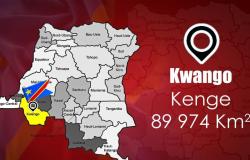(Ecofin Agency) – Announced as a major turning point for the future of the West African energy sector, the proposed merger between Kosmos Energy and Tullow Oil will not a priori see the expected end, because the American side has withdrawn from the negotiating table.
Kosmos Energy has decided to withdraw from negotiations for the acquisition of Tullow Oil, ending what could have been a life-saving turnaround for the British company which has struggled for years to remain competitive in a rapidly changing oil industry.
You should know that Kosmos has reserved the right to reconsider its position under “certain conditions”.
For Tullow, this merger represented much more than a growth opportunity. It represented a great opportunity to stabilize one’s finances and regain a semblance of dynamism. For years, the company has been accumulating failures and losses, between costly but unsuccessful projects in Kenya and the drop in yield from its Ghanaian fields. With a debt of around $1.4 billion, its ability to plan for the future seems increasingly compromised. Additionally, with leadership in transition – CEO Rahul Dhir having announced his departure – and financing options dwindling, the question is no longer whether Tullow can reinvent itself, but rather how much longer it can resist.
The announcement caused a shock on the markets. Tullow’s shares plunged 11%, while Kosmos’ shares jumped. A reaction which reflects the growing skepticism of investors regarding the survival of Tullow. The company had nevertheless assured that it was well positioned to optimize its operations while remaining autonomous, but these declarations struggle to convince in the face of an increasingly relentless financial reality.
The failure of this merger, which would have made it possible to pool resources and reduce costs in joint projects in Ghana, highlights a deeper problem: Tullow seems to have lost its ability to inspire confidence. According to James Hosie, analyst at Shore Capital Stockbrokers, neither creditors nor governments, notably that of Ghana, seemed ready to support this alliance, implicitly signaling a lack of prospects for the company.
Kosmos, for its part, withdrew, capitalizing on its position of strength. The company continues to progress thanks to its diversified portfolio and strategic projects, such as the development of natural gas in Senegal and Mauritania.
As the West African oil industry evolves towards more agile models, focused on natural gas and the energy transition, Tullow appears trapped in an oil-dominated past. The failure of this merger symbolizes the challenges of an industry where fragile companies struggle to find their place.
Regardless, there is still hope for Tullow. The company saw its net profit more than double in the first half of 2024, driven by increased oil and gas production, as well as better crude realizations. She anticipates a “substantial increase in its free cash flow” in the second half and maintains its annual forecasts between 200 and 300 million dollars, provided that the price of a barrel remains around 80 dollars.
Olivier de Souza
Read also:
16/12/2024 – Tullow-Kosmos merger: a strategic turning point for the West African energy industry






